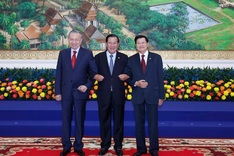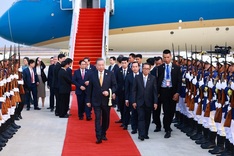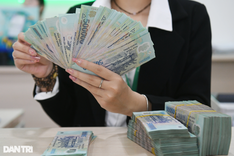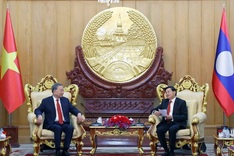
Prime Minister Pham Minh Chinh speaks at the October 25 high-level discussion held within the framework of the Signing Ceremony and High-Level Conference of the United Nations Convention against Cybercrime. (Photo: VNA)
Prime Minister Pham Minh Chinh on October 25 called for joint global efforts to make the Hanoi Convention an enduring source of inspiration for international cooperation, trust, and shared responsibility in building a safe digital future.
The appeal was made during a high-level discussion co-chaired by Deputy Prime Minister Bui Thanh Son and Ghada Waly, Executive Director of the United Nations Office on Drugs and Crime (UNODC), held as part of the Signing Ceremony and High-Level Conference of the United Nations Convention against Cybercrime in Hanoi.
The event gathered UN Secretary-General Antonio Guterres, Vietnamese leaders, and delegates from over 110 countries and international organisations.

Prime Minister Pham Minh Chinh walks alongside UN Secretary-General Antonio Guterres at the event venue in Hanoi on October 25. (Photo: VNA)
In his address, Prime Minister Chinh said digital transformation is not only an inevitable global trend but also a strategic choice for every nation pursuing rapid and sustainable growth. However, he warned that this transformation also poses unprecedented risks, especially cyberattacks and cybercrime, which no country can tackle alone.
Vietnam, he noted, views cybersecurity and the prevention of cybercrime as pillars of its national digital strategy. The country has enacted various laws and action plans and remains ready to cooperate internationally to ensure global cybersecurity. Hosting the signing of the Hanoi Convention demonstrates Vietnam’s strong commitment to this cause.
The Prime Minister proposed five key actions for effective implementation of the convention: enhancing international cooperation through partnerships among nations, organisations, and technology firms; harmonising national legal frameworks; investing in cybersecurity infrastructure; developing skilled human resources; and deepening participation in international legal mechanisms on cyberspace.
Chinh reaffirmed Vietnam’s commitment to fulfilling its obligations and working closely with other member states to ensure that no one is left behind in the digital age.
Representatives from 18 countries expressed support for the convention, pledging stronger cooperation in information sharing, evidence exchange, capacity building, and the creation of global standards for cyberspace governance.
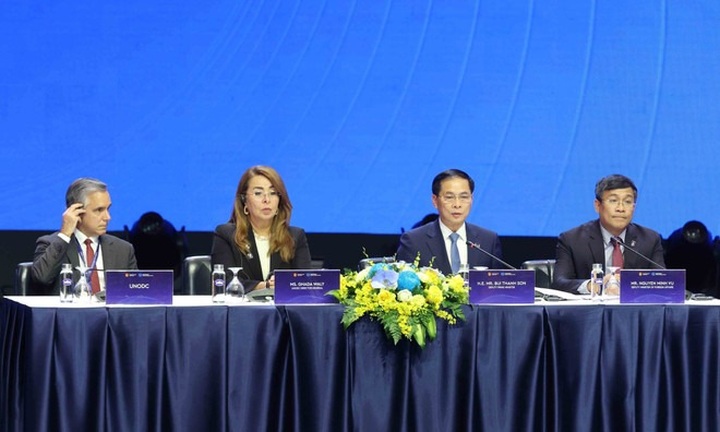
Vietnamese Deputy PM Bui Thanh Son (2nd, right) and Ghada Waly (2rd, left), Executive Director of the United Nations Office on Drugs and Crime (UNODC), co-chair the high-level discussion. (Photo: VNA)
Many delegates praised Vietnam’s leadership in initiating and hosting the convention, underscoring its role in promoting global cybersecurity. Russia pledged close cooperation with the international community, while Ecuador highlighted the need to align technological development with human security and rights. Uzbekistan called cybersecurity a core element of national security, and Poland urged consensus on future protocols and joint responses to cybercrime.
Cambodia reaffirmed its commitment to building cybersecurity capacity and expanding collaboration with the private sector, while Australia announced a contribution of USD 83.5 million to support the Southeast Asia and Pacific Cyber Programme.


